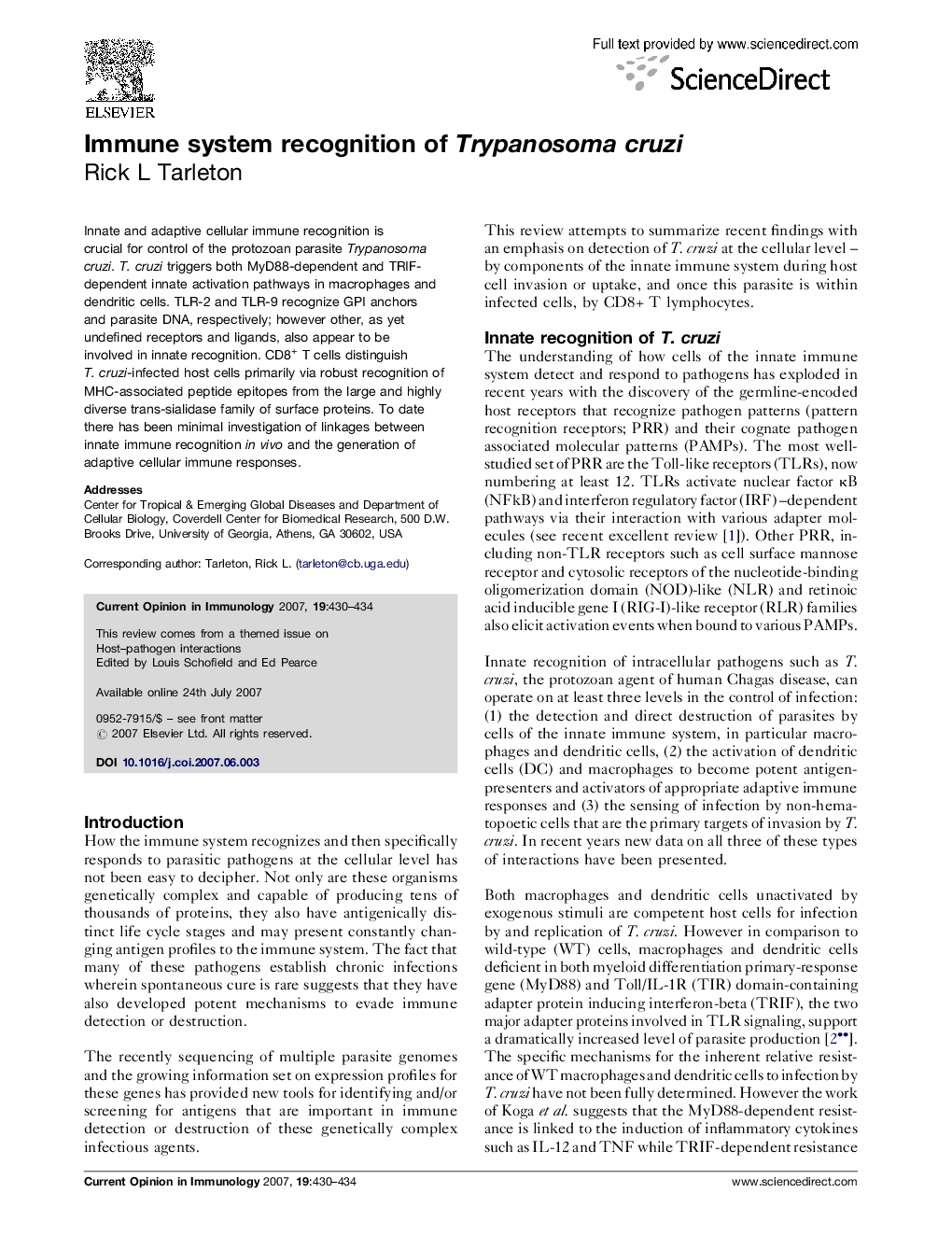| Article ID | Journal | Published Year | Pages | File Type |
|---|---|---|---|---|
| 3346519 | Current Opinion in Immunology | 2007 | 5 Pages |
Innate and adaptive cellular immune recognition is crucial for control of the protozoan parasite Trypanosoma cruzi. T. cruzi triggers both MyD88-dependent and TRIF-dependent innate activation pathways in macrophages and dendritic cells. TLR-2 and TLR-9 recognize GPI anchors and parasite DNA, respectively; however other, as yet undefined receptors and ligands, also appear to be involved in innate recognition. CD8+ T cells distinguish T. cruzi-infected host cells primarily via robust recognition of MHC-associated peptide epitopes from the large and highly diverse trans-sialidase family of surface proteins. To date there has been minimal investigation of linkages between innate immune recognition in vivo and the generation of adaptive cellular immune responses.
